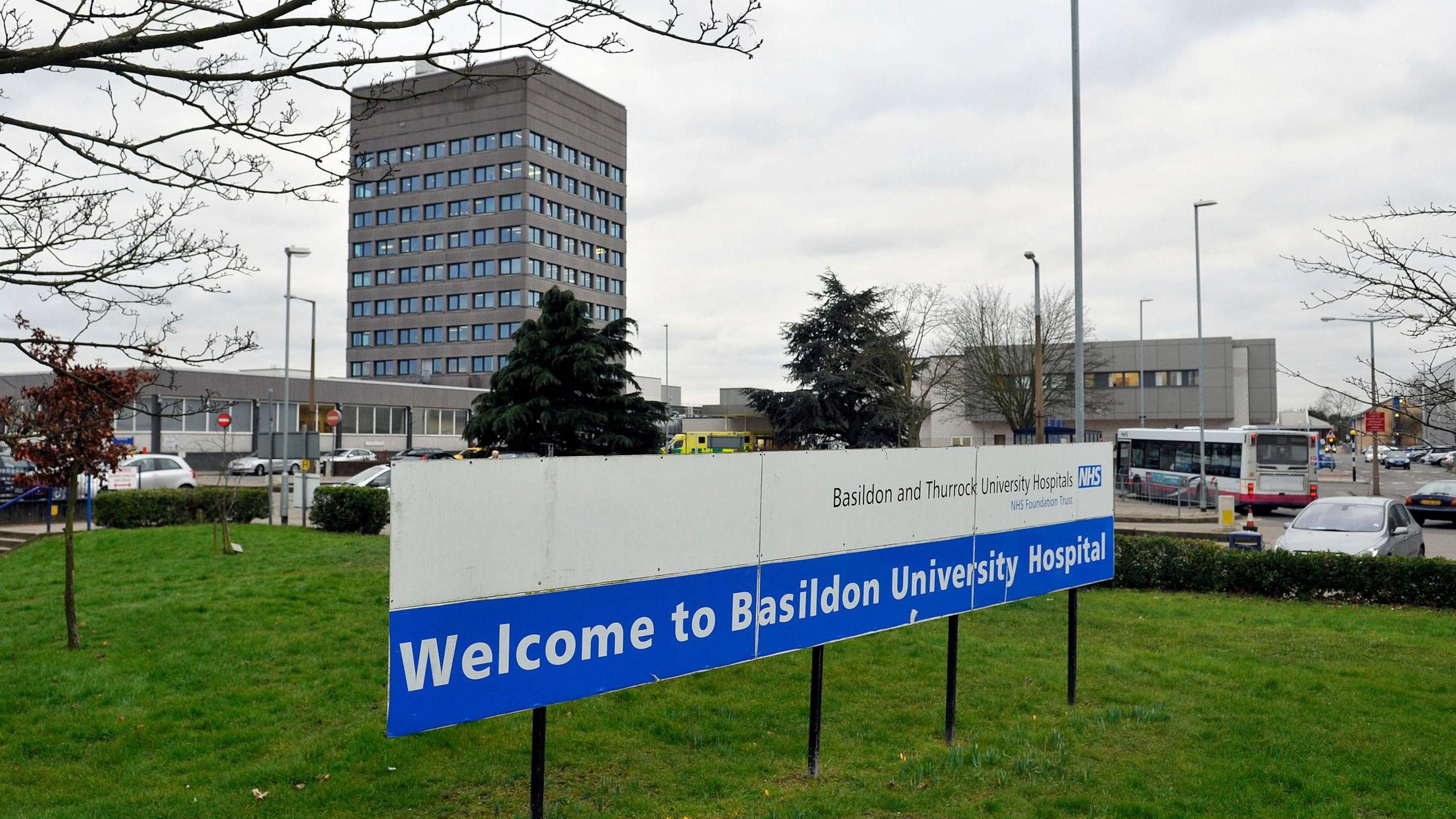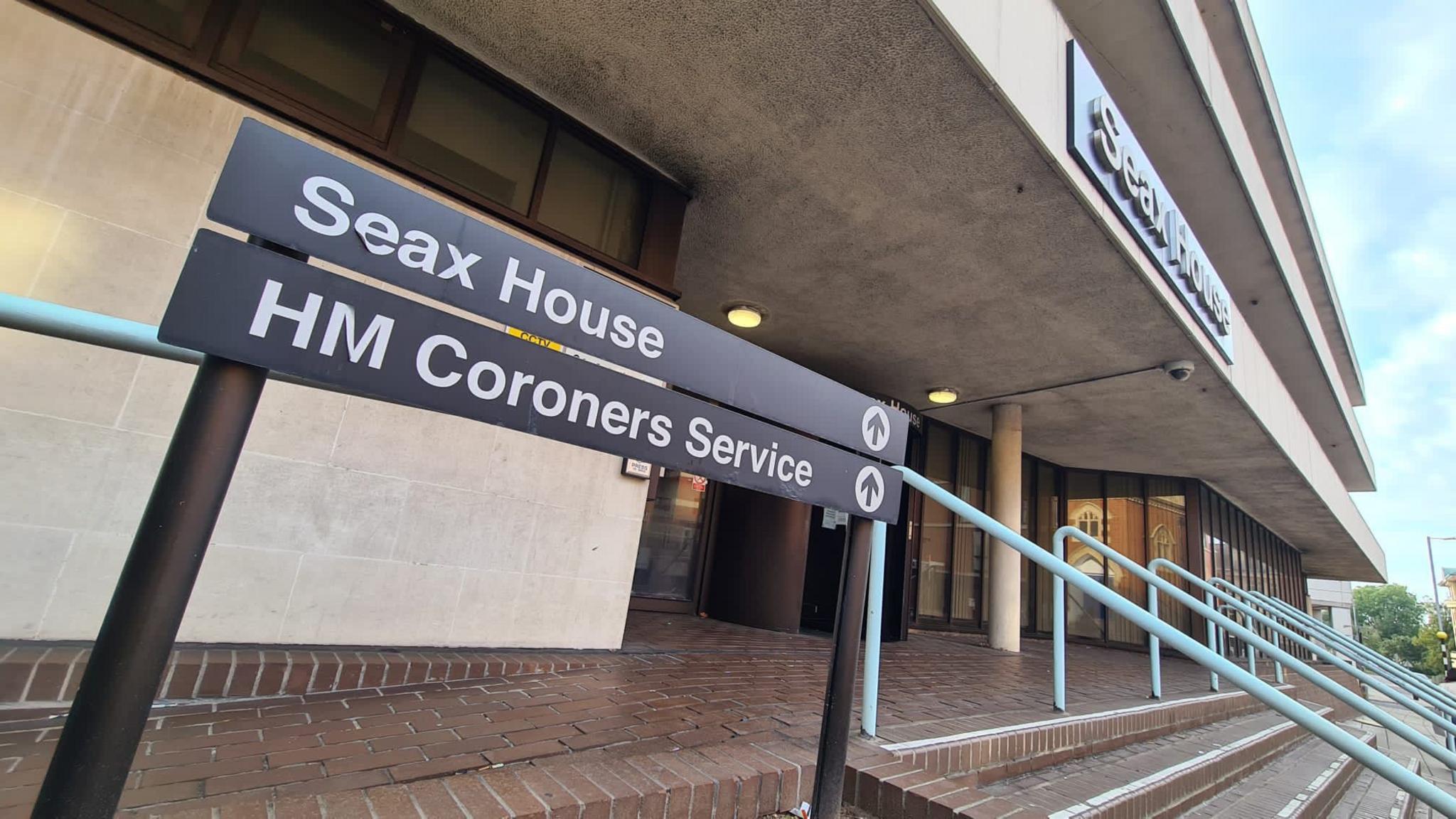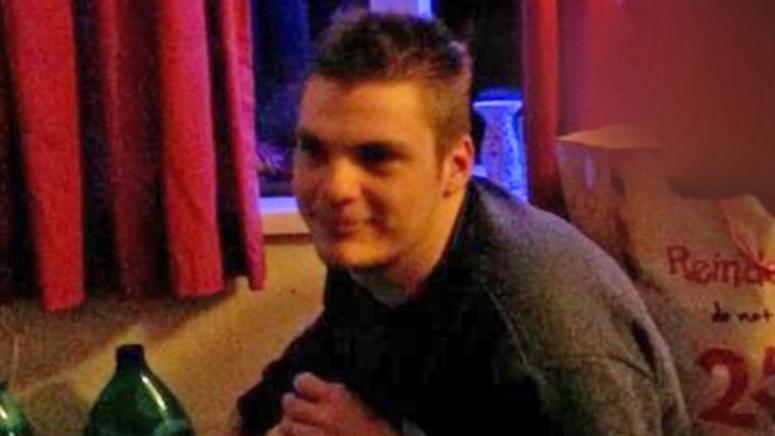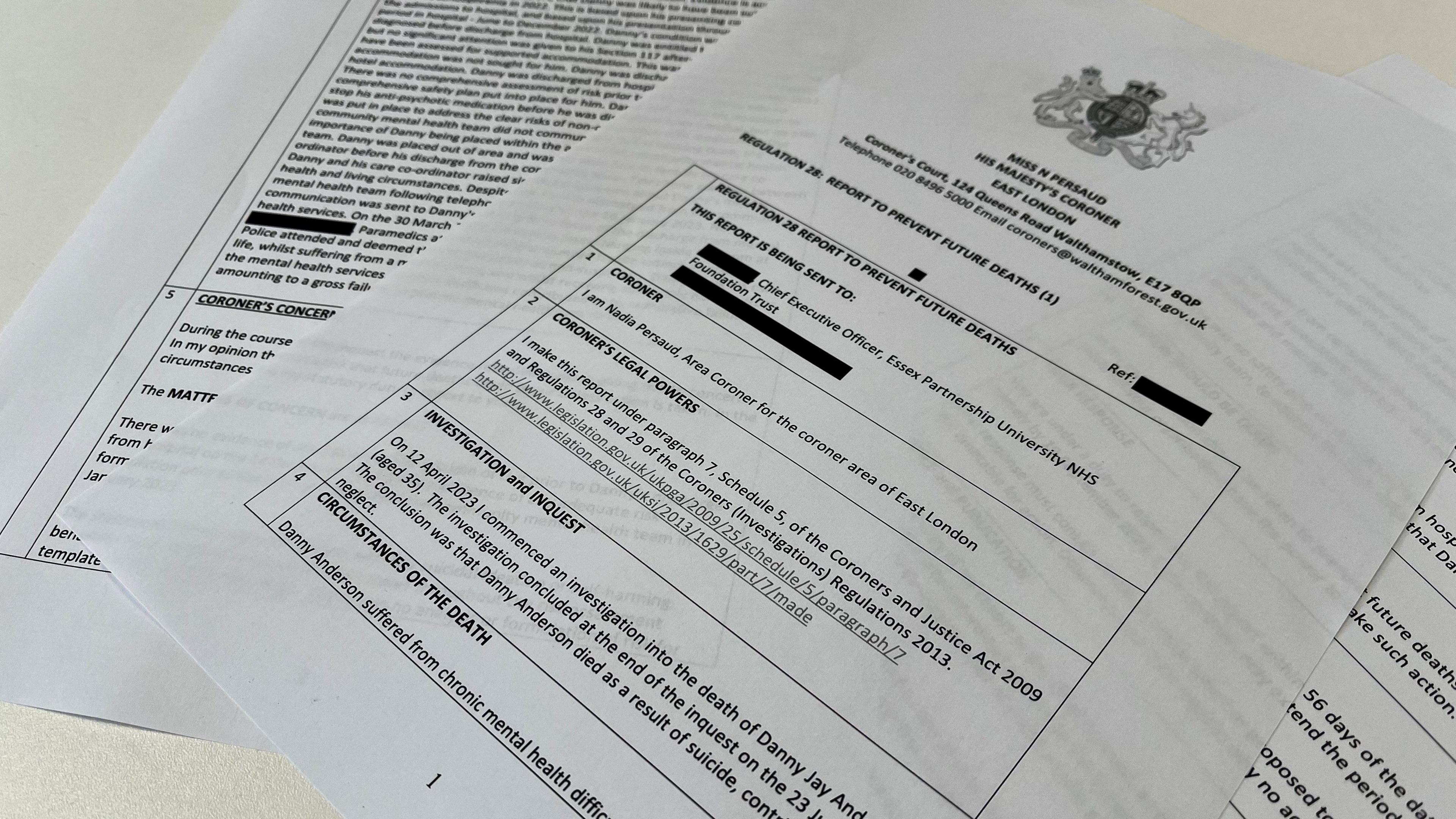Man died from cancer after year-long hospital wait

William Hare first presented at Basildon Hospital in November 2022
- Published
Cancer was allowed to fatally spread throughout a man's body due to a year-long delay in diagnosing him, a coroner said.
William Hare, 71, died in January 2024 after treatment became "futile", such was the extent of his illness and the lateness in discovering it.
In a report, coroner Rebecca Mundy demanded answers from the Mid and South Essex NHS Foundation Trust over his treatment at Basildon Hospital.
The trust admitted that the "diagnosis was too slow and follow-up too conservative".
An inquest in December concluded Mr Hare, also known as Bill, had died from metastatic urothelial cancer - contributed to by neglect.
Following scans at Basildon Hospital in November 2022, it was suspected he had cancer in one of his ureters.
Mr Hare underwent several tests but no action was taken until a CT scan on 5 June 2023. However, the results were not reviewed until 29 August that year.
"No-one giving evidence [during the inquest] could explain that delay," Ms Mundy wrote in a prevention of future deaths report, external.

An inquest into Mr Hare's death was held at Essex coroner's court in Chelmsford
The report said Mr Hare had been deemed unfit for surgery in September 2023, but returned to hospital while in pain in both the October and November.
Medical staff located Mr Hare's cancer on 20 December and tried to move him to Southend Hospital, but "failures to organise transport" meant he remained in Basildon.
By this time, the cancer had spread to his bladder, lungs and psoas muscle and treatment had become "futile", Ms Mundy said.
Mr Hare was moved to a hospice and died on 23 January.
Outlining her concerns, Ms Mundy said the hospital trust must explain the delay in diagnosing and treating Mr Hare.
She also wanted to hear why staff had failed to organise his hospital transfer and why there had been a lack of a specialist renal consultant at one of the trust's multi-disciplinary groups.
The trust's chief medical officer, Christine Blanshard, said an internal review had been carried out over Mr Hare's care.
She sent her "heartfelt condolences" to Mr Hare's family and said the coroner's concerns had been listened to and acted upon.
"We have updated our diagnostic procedures and ensured that cancers where the origin is uncertain are discussed by specialist multidisciplinary teams and escalated faster," said Ms Blanshard.
Get in touch
Do you have a story suggestion for Essex?
Follow Essex news on BBC Sounds, Facebook, external, Instagram, external and X, external.
Related topics
You may also be interested in
- Published24 December 2024

- Published8 November 2024

- Published7 August 2024
